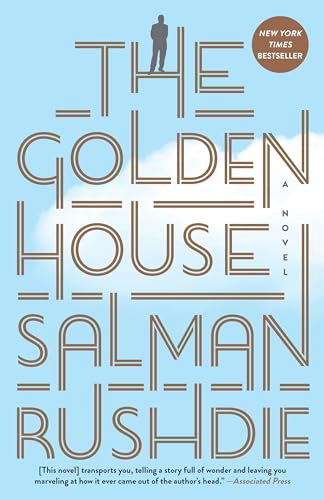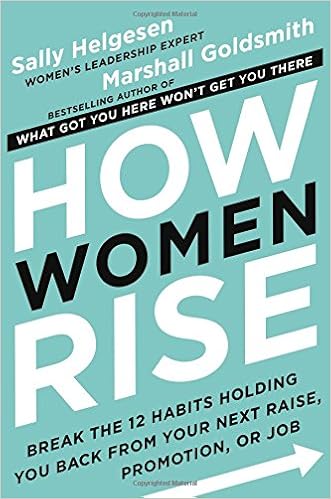Private Equity by Carrie Sun, 2024
A memoir about working for one of NYC's most successful hedge fund wonderkind and CEO, Private Equity provides an inside view of a Wall Street financial company. In today's increasingly materialistic world, these companies succeed because of the sheer amount of time and focus people spend to synthesize and analyze information to determine which stocks will go up.
As an assistant to Boone Prescott, a pseudonym for billionaire Chase Coleman, Sun is run ragged trying to handle Prescott's personal and professional schedule. In a world where billions are made and Portfolio Managers continually chase millions to support the New York City life style creep, people are machines, constantly on, working around the clock.
One assistant notes in awe that a fund manager works literally throughout the day, no breaks to check personal email or surf the internet.
In this world where money is everything and time is money (e.g. a day is an eternity to wait for someone to get back to you), Sun must always be prepared to meet Prescott's every need. She handles his calendar, as well as synthesizing large volumes of information to prepare slides for his meetings.
Representing Prescott and Carbon, Sun realizes how many doors are opened and even more privileges made for the privileged class. Reservations that usually require weeks of advance notice can be made in a few hours notice at the best restaurants in Manhattan. Money talks, especially in New York, the finance capitol of the world.
Sun provides insight into generous gifts of $6,000 coats and events with a budget of over $100,000. With this excess, there is so much waste; such as a cake worth over $1,000 for Prescott's birthday celebration is thrown away, untouched.
The memoir is mixed in with stories of Sun growing up, becoming the 'machine' that is able to work non-stop and adjust to Prescott's preferences and constant feedback on how she should act. Her parents were sent to the countryside during the Cultural Revolution, resulting in two damaged and hardened people.
They took their anger out on their daughter and each other, with Sun's father leaving the family, only to return and continually threaten to leave. Sun grows up burdened and abused with guilt by her parents. To act perfect. To not throw away the chance she has been given by their great sacrifices.
Many immigrant children, including me, feel these pressures growing up and well into our 20s and 30s, but Sun's parents cross many lines. Wanting their approval, she decides to attend MIT to determine how markets can be predictable due to her parents' joy from short-term wins from day trading.
The memoir feels a bit disjointed. It starts off with Sun working at Carbon and then goes into her backstory of how she has the fortitude to work through injuries and the immense stress trying to please Prescott. There is so much emphasis on the financial world in the memoir, yet there is no compelling story line.
There are interesting facts and details and how Sun's health deteriorates at Carbon is troubling, but I did not feel an emotional connection as a reader. The story of her childhood and college experiences are honest and brave, and perhaps if the memoir was in chronological order, the reader would have built more sympathy for Sun to make the story of her working for Prescott more compelling.
Overall, there are interesting and insightful observations (like how Prescott's success was the result of consistently performing well v aiming for big wins) but the memoir did not flow as I had hoped it would.
Influence is Your Superpower: The Science of Winning Hearts, Sparking Change, and Making Good Things Happen by Zoe Chance, 2022
Chance is a professor who teaches about influence at Yale's Business School. The book summarizes her course and provides the type of information expected from a business school course.
She starts off with an overview of our brains. There is System 1 ( the cerebellum and limbic system), often referred to as the Right Brain. She calls this the Gator - the part of the brain that makes quick and emotional decisions on little information. This is where our unconscious biases live.
System 2 (the neocortex) or Left Brain, is the Judge. This part of the brain makes rational decisions, is analytical and engages in critical thinking.
These two systems are one way. System 2 is constantly receiving info from System 1, filtering information, while System 1 tends not to receive signals from System 2. Or, intentionality is needed for System 2 to affect System 1. This book focuses on influencing the System 1 or the Gator.
Influencing is not changing someone's mind, but their behavior. For example, people tend to take the path of least resistance and are turned off by things that are hard, or perceived to be hard. Therefore, if you want people to do business with you, make it as easy as possible
The book also has a chapter called 'Just Ask.' This has always been my personal philosophy. The worst that can happen is that someone says no. Chance also notes that people are more generous and willing to help then we think.
To help with the ask, we should avoid diminishing language like using "I" frequently. By using the first person pronoun, we are focusing on ourselves and out feelings, not the other person.
The best way to make the ask is to be be direct and leave out the "I". Also, STOP apologizing! Instead of saying, "Sorry for being late," say "Thanks for your patience".
There are also tips for public speaking. She talkes about the power of the pause and doing full body pauses, which gives time for the audience to catch up. There is also the need to connect and get in sync with the audience.
Focusing on connecting with one person (making eye contact, walking closer to them) will lead to connecting with rest of audience
Timing is also important. People are more open to suggestions and making decisions when they are ready for it. Cebu Pacific ran a sidewalk campaign in Hong Kong during monsoon season. With people rushing with their umbrellas looking down, they saw sidewalk messages reminding people them that "It's sunny in the Philippines". Airline ticket sales increased by 37%.
Part of the ask should include Framing. Suggesting or pointing something out for people to focus on can be influential on how someone considers the ask and makes a decision.
For example, framing a talk with, "There will be one or two strategies that will resonate with you today" will prompt people to find these strategies and jot them down. Even pointing something out or naming something will call into being.
Another influencer is loss aversion. People will do as much to avoid $10 as to gain $20, so this should be noted when thinking of how to frame something.
Monumental Framing is for longer term ideas, focusing on impact and the why. Motivates people through importance, scope, size, and our friend FOMO (fear of missing out).
Manageable Framing is for the near term, emphasizing the How, focusing on ease of course. People want more concrete details for near term things.
Mysterious Framing causes interests and for people to guess and wonder. This framing is done with words like 'new', 'suddenly', and 'breaking news'.
These frames can be combined and even all used together to motivate audiences. An example is Marie Kondo's Life-Changing (Monumental) Magic (Mysterious) of Tidying Up (Manageable).
Although these are in reference for business, it makes me wonder how I can frame my relationships with my husband and daughter...
For people who disagree, use the concept of Aikido to influence them. The practice of Aikido responds to an attack (or disagreement in this case) by redirecting momentum.
Be open and curious about the resistance. Acknowledge doubt, say "I see you have some doubts" and "What other concerns do you have?". The Goal is to listen, not to respond or get defensive.
By affirm their freedom of choice with comments or statements like "Feel free to say no" or "Could we discuss...?", this redirects the energy of the disagreement.
Other influence suggestions include 'soft asks': "How would you fee about...?" or "I'm not pushing you to decide, but where would say you are?". This is called a test close in Sales.
Implementation intention is asking someone what they plan to do, having them think about next steps.
Even if someone says no, be the Kindly Brontosaurus; someone who is persistent, always in view/checking in, polite and friendly.
For big challenges, there is the Magic Question: "What would it take?"
This question invites collaboration and creativity towards a solution, leading to buy-in. Negotiation is a conversation aimed at coming to a mutually agreeable solution; not a lump sum, winner take all. The other person should feel good. Even if you do not care about the other person, happy people are more generous and creative.
Before entering a negotiation, think about Value Creation Questions - How can this be better for me? How can this be better for them? Who else can benefit?
Give someone choices so that they feel in control. A study showed that when offered a product alone, 97% opted to wait and not buy the product. A choice will drive people to make a decision and framing the choices can be affective. The Goldilocks strategy presents one option that is not as great, one that is too much and then the middle/just right option.
If all else fails and you are negotiating with a difficult person, identify your leverage and be direct with your wishes and boundaries


















